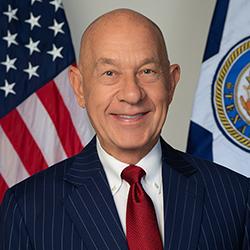Houston Leadership Responds to Unfounded Claims of Imminent Riots
Mayor Sylvester Turner Refutes Allegations of Planned Violence in Houston
Houston’s Mayor Sylvester Turner has categorically dismissed recent accusations from Republican Congressman Dan Crenshaw, who alleged that violent riots are being orchestrated within the city. During a public address, Mayor Turner labeled these claims as baseless and stressed Houston’s unwavering dedication to ensuring public safety and fostering community unity. He cautioned against the dangers of spreading misinformation, which could inadvertently fuel unrest rather than prevent it.
Highlights from Mayor Turner’s statement include:
- Local law enforcement has found no credible intelligence indicating any planned violent demonstrations.
- An appeal for bipartisan collaboration to safeguard community well-being and avoid politicizing security issues.
- A promise to maintain transparency with residents about ongoing public safety efforts.
| Topic | Mayor Turner’s Position |
|---|---|
| Claims of Riots | Unsubstantiated and lacking evidence |
| Law Enforcement Readiness | Vigilant and prepared to maintain order |
| Community Impact | Encourages unity and vigilance against false information |
Analyzing the Basis of the Congressman’s Assertions
The Congressman’s warnings about impending riots in Houston primarily stem from a mix of social media rumors and anonymous tips that have not been verified. However, both Houston Police Department officials and local community leaders have largely dismissed these claims as exaggerated or unfounded. According to the Houston Police Department, there is no credible evidence or increase in suspicious activities suggesting organized violent protests are forthcoming. Instead, law enforcement continues to work closely with community groups to promote peaceful demonstrations and prevent disturbances.
- No Verified Threats: Houston police report no intelligence supporting claims of planned riots.
- Ongoing Community Engagement: The Mayor’s office emphasizes continuous dialogue with local leaders to maintain calm.
- Social Media Misinformation: Many flagged posts are speculative or taken out of context.
| Information Source | Allegation | Verification Outcome |
|---|---|---|
| Anonymous Social Media Posts | Organizing violent protests | Unconfirmed |
| Houston Police Department | No evidence of unrest | Confirmed |
| Community Leaders | Advocating peaceful gatherings | Confirmed |
Independent fact-checkers and journalists have also scrutinized the Congressman’s letter, identifying inaccuracies such as conflating incidents from other cities or unrelated events with Houston’s situation. Civil rights advocates have countered the alarmist tone by emphasizing the importance of addressing systemic challenges through constructive dialogue rather than fear-based narratives. This comprehensive review highlights a significant gap between political rhetoric and the realities reported by local authorities and watchdog organizations.
Consequences of Politicized Language on Public Confidence and Safety
The public dispute between Mayor Turner and the Republican Congressman illustrates how charged political language can deeply influence community trust and social harmony. Alarmist talk about potential “riots” risks sowing fear and division, undermining the relationship between city officials and residents. Mayor Turner’s strong rebuttal seeks to counteract misinformation but also reveals the difficulties leaders face in preserving calm amid sensationalized media coverage.
Experts in community safety and leadership stress the importance of responsible communication during sensitive periods to prevent escalation. Key contributors to growing public distrust include:
- Polarizing narratives that portray community concerns as threats.
- Amplification of false information through social and traditional media channels.
- Conflicting messages from officials that erode confidence in law enforcement.
Absent transparent and empathetic dialogue, these factors risk alienating vulnerable groups and hindering cooperative efforts essential for public safety.
| Effect | Community Reaction |
|---|---|
| Increased Anxiety | Growth in neighborhood watch initiatives |
| Social Polarization | Divided opinions across social media platforms |
| Decreased Cooperation | Lower attendance at community safety meetings |
Building Stronger Communication Channels Between Local and Federal Leaders
Enhancing collaboration between city officials and federal representatives requires establishing consistent, transparent communication pathways. Proactive strategies such as regular joint briefings and collaborative fact-finding missions can help prevent misunderstandings and curb the spread of misinformation that often escalates tensions. For example, sharing verified intelligence and real-time updates through secure digital platforms enables both parties to stay informed and respond swiftly to public safety concerns or potential unrest.
Additionally, formalizing conflict resolution mechanisms and appointing dedicated liaison officers can ensure disputes are addressed promptly and constructively. Involving community stakeholders in these discussions further bridges perception gaps, allowing federal lawmakers to better grasp local realities. The table below summarizes effective approaches to fostering cooperation:
| Approach | Primary Advantage | Illustrative Example |
|---|---|---|
| Scheduled Joint Briefings | Enhances shared situational awareness | Monthly security update meetings |
| Secure Intelligence Sharing Platforms | Reduces misinformation risks | Encrypted cloud-based data exchange |
| Conflict Resolution Frameworks | Facilitates timely dispute management | Mediation teams with defined roles |
| Community Stakeholder Engagement | Strengthens public trust and inclusion | Open forums and feedback sessions |
Looking Ahead: Navigating Public Safety and Political Discourse in Houston
As the dialogue between Mayor Turner and Congressman Crenshaw continues, tensions surrounding public safety and political rhetoric remain palpable in Houston. City leaders reaffirm their dedication to preserving peace and order, while critics advocate for enhanced transparency and clearer communication. This ongoing situation reflects broader challenges in urban governance amid increasing partisan divides, with residents attentively observing how officials manage concerns related to security and civil unrest in the months ahead.

